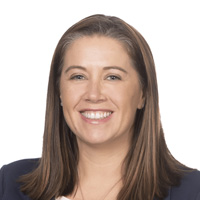To Define Your Retirement Goals, Take the Postcard Test
You've got to really know yourself to understand what's important to you, where you're going and how you can get there. A simple test could help shed some light on your path.


Profit and prosper with the best of Kiplinger's advice on investing, taxes, retirement, personal finance and much more. Delivered daily. Enter your email in the box and click Sign Me Up.
You are now subscribed
Your newsletter sign-up was successful
Want to add more newsletters?
It all starts with a pack of postcards I bought on Amazon for five bucks. When I sit down with a new client, usually a married couple, I take out my postcards and lay them on the table. The exercise: Pick five of these that represent the life you want.
Beach, hammock, grandkids, cruise ship — these images are pretty common choices, but each comes with its own flavor.
One client wants to pay for his grandkids’ education; another wants to travel through the cathedrals of Italy; another wants to leave a vibrant, low-debt business for her longtime employees. Different stories for different clients.
From just $107.88 $24.99 for Kiplinger Personal Finance
Become a smarter, better informed investor. Subscribe from just $107.88 $24.99, plus get up to 4 Special Issues

Sign up for Kiplinger’s Free Newsletters
Profit and prosper with the best of expert advice on investing, taxes, retirement, personal finance and more - straight to your e-mail.
Profit and prosper with the best of expert advice - straight to your e-mail.
These stories are dictated by values, which also influence our daily behavior. Our values make us who we are.
If your parents hammered away at the idea of being debt-free, you may have learned similar traits. Grow up in a traveling family, and you’ll probably invest in showing the world to your own kids. Watch your role models take pride in charitable giving, and you will probably follow suit as an adult.
These values are woven into who we are, and knowing what you value — which postcard you pick — is vital to your financial strategy.
Your values tell you why you act the way you do and how to optimize your plan for the future. Knowing your values will make your plan more “keepable.”
Know Who You Are
Do you find yourself shopping for the most cost-effective vehicle and the next day leaving on your second all-inclusive cruise that month? Do you find yourself counting pennies at mealtimes and clipping coupons for the grocery store, then the next day buying a vintage car (leather seat covers, of course) on impulse?
OK, maybe those are extreme examples, but where you save money and where you spend it comes down to your values, which are unique to you and may not make sense to others.
Know Who You Want to Be
“Aspirational values” tell you who you “aspire” to be. More than wishful thinking, they also tell you about yourself.
If you feel drawn to donate to a wildlife preservation group, even if you never have, you’re experiencing your values. Your aspirations, like giving to an eco-friendly cause, still paint a picture of who you are, and how you might want to invest.
By that same right, you will probably not want to invest in a company with slack environmental policies. By doing so, you’d experience discomfort from your values, which could make that investment more trouble than it’s worth in the long run.
Know What’s Possible
Knowing yourself can also help you plan for what’s possible. Some of us are natural savers, and some of us are natural spenders. As for me, I’m a natural spender, especially when it comes to relaxing with those I love or seeing a part of the world I’ve never explored. I know myself, and I know that I’ll splurge on that trip or that expensive meal, even when it might not be strategic to do so.
Knowing that about myself, one practical step I take is to set up automatic savings. With a few clicks, I automatically take a piece of my income and put it in savings, investments and retirement. I don’t even see the money, and (after a while) I don’t even feel the loss.
By understanding yourself, you have a hold on what’s realistic in your financial life. You know your faults and where to create an intentional outlet to express yourself financially.
If you know you’ll want a big celebration for your 20th anniversary, plan for it! Build the cruise or the lavish stay-cation into your budget for the year rather than overspending when the big day comes.
If you know you have a tendency to disregard distant future events like retirement, set up strict guidelines that will help you make this possible. Set up an automatic withdrawal from every check, put the money in a 401(k) that will be difficult to draw on, and budget from your take-home pay after all this is done, not from the salary on your job description.
Know Which Postcards You’d Pick
“Just making money” is an unreflective, oversimplified reason to work with your finances.
Over the long haul, your investments will reflect something deeper. Your values will show in how you spend and save, what makes you happy, and what keeps you up at night. It’s best that these financial values aren’t a surprise to you.
A values inventory can help clarify your core values, which in turn can help you develop a plan with an adviser. Values assessment tests range from the simple and free to the complex and expensive.
You are going to be you for a long time! Your long-term investment strategy should be based on your strengths, weaknesses and driving values.
The postcards I give my clients aren’t pictures of piles of money and ascending trendlines, they show families making memories, places you’ve never been, and people and causes in need. Your postcard choice reflects part of who you are, and the choices you make with your money should do the same.
Profit and prosper with the best of Kiplinger's advice on investing, taxes, retirement, personal finance and much more. Delivered daily. Enter your email in the box and click Sign Me Up.

Erin Wood has over two decades of experience humanizing financial planning. As SVP of Advanced Planning at AssetMark, Erin leads innovation for new wealth solutions, secures strategic industry relationships and oversees a team of specialists who work directly with advisers and their high-net-worth clients. Erin focuses on delivering tailored strategies for estate planning, tax efficiency, retirement planning and multigenerational wealth transfer to help financial advisers keep up with evolving client demands.
-
 Thinking of Switching Phone Carriers? Do These 8 Things First
Thinking of Switching Phone Carriers? Do These 8 Things FirstSwitching carriers is easier than ever, but overlooking the fine print could cost you. Here’s what to check before you make the move.
-
 Samsung Galaxy S26 Ultra: What to Know Before You Upgrade
Samsung Galaxy S26 Ultra: What to Know Before You UpgradeThe Galaxy S26 Ultra brings new features and strong launch deals, but whether it’s worth upgrading depends on what you already own.
-
 Nasdaq Soars Ahead of Nvidia Earnings: Stock Market Today
Nasdaq Soars Ahead of Nvidia Earnings: Stock Market TodayWednesday's risk-on session was sparked by strong gains in tech stocks and several crypto-related names.
-
 Your Retirement Age Is Just a Number: Today's Retirement Goal Is 'Work Optional'
Your Retirement Age Is Just a Number: Today's Retirement Goal Is 'Work Optional'Becoming "work optional" is about control — of your time, your choices and your future. This seven-step guide from a financial planner can help you get there.
-
 Have You Fallen Into the High-Earning Trap? This Is How to Escape
Have You Fallen Into the High-Earning Trap? This Is How to EscapeHigh income is a gift, but it can pull you into higher spending, undisciplined investing and overreliance on future earnings. These actionable steps will help you escape the trap.
-
 I'm a Financial Adviser: These 3 Questions Can Help You Navigate a Noisy Year With Financial Clarity
I'm a Financial Adviser: These 3 Questions Can Help You Navigate a Noisy Year With Financial ClarityThe key is to resist focusing only on the markets. Instead, when making financial decisions, think about your values and what matters the most to you.
-
 It's Time to Bust These 3 Long-Term Care Myths (and Face Some Uncomfortable Truths)
It's Time to Bust These 3 Long-Term Care Myths (and Face Some Uncomfortable Truths)None of us wants to think we'll need long-term care when we get older, but the odds are roughly even that we will. Which is all the more reason to understand the realities of LTC and how to pay for it.
-
 Fix Your Mix: How to Derisk Your Portfolio Before Retirement
Fix Your Mix: How to Derisk Your Portfolio Before RetirementIn the run-up to retirement, your asset allocation needs to match your risk tolerance without eliminating potential for growth. Here's how to find the right mix.
-
 An Executive's 'Idiotic' Idea: Skip Safety Class and Commit a Federal Crime
An Executive's 'Idiotic' Idea: Skip Safety Class and Commit a Federal CrimeSeveral medical professionals reached out to say that one of their bosses suggested committing a crime to fulfill OSHA requirements. What's an employee to do?
-
 How You Can Use the Financial Resource Built Into Your Home to Help With Your Long-Term Goals
How You Can Use the Financial Resource Built Into Your Home to Help With Your Long-Term GoalsHomeowners are increasingly using their home equity, through products like HELOCs and home equity loans, as a financial resource for managing debt, funding renovations and more.
-
 How to Find Free Money for Graduate School as Federal Loans Tighten in 2026
How to Find Free Money for Graduate School as Federal Loans Tighten in 2026Starting July 1, federal borrowing will be capped for new graduate students, making scholarships and other forms of "free money" vital. Here's what to know.